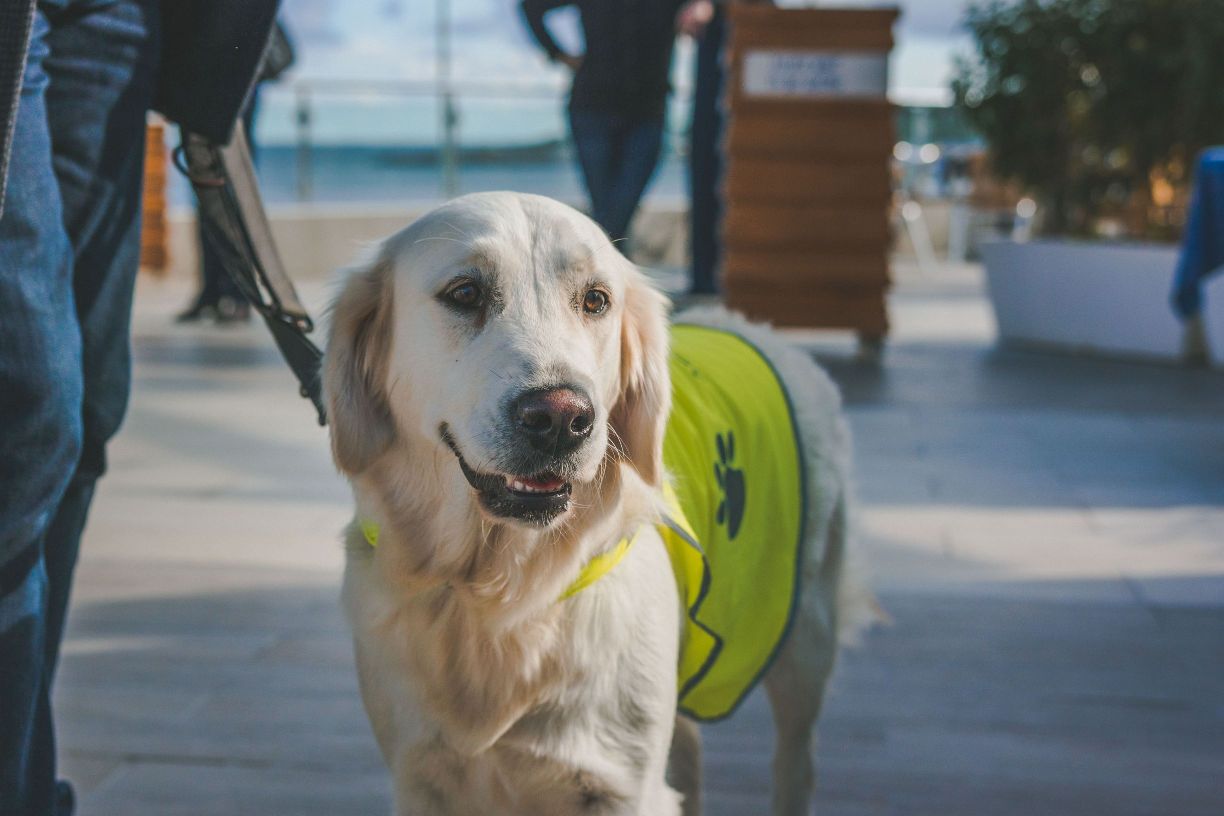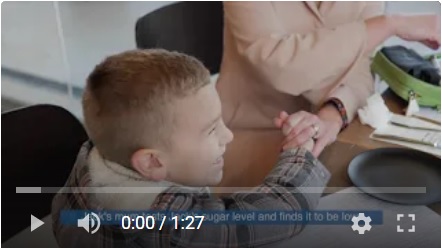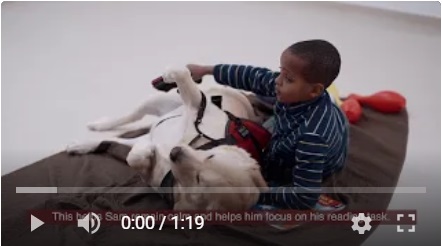This website uses cookies so that we can provide you with the best user experience possible. Cookie information is stored in your browser and performs functions such as recognising you when you return to our website and helping our team to understand which sections of the website you find most interesting and useful. For more information, kindly refer to our Privacy Policy.
Choosing the right dog
Service dogs are dogs that have been trained to carry out tasks for persons with a disability to make their daily lives easier. Service dogs can be trained to do a variety of tasks, from opening doors for persons in a wheelchair to alerting a hearing impaired person that someone is at the door.
Our focus at the moment is on training dogs to help persons – primarily (but not only) children – who are on the autistic spectrum or who need an alert to check their blood sugar level in cases of hyper- or hypoglycemia. We do consider training dogs for other conditions, so please contact us if you think you or a family member may benefit from having a service dog.
Autism Assistance Service Dogs
An autism assistance service dog is trained to support a person who is on the autism spectrum to stay calm in situations which they may find over stimulating, such as shopping at a supermarket. The dog offers a focal point and is trained to provide pressure therapy when the person is starting to feel overwhelmed. In the case of children who are on the autistic spectrum, service dogs can be tethered to the child and trained to follow commands from parents / guardians to increase the safety of the child such as to stop at doorways and to stop the child from running away. Service dogs have also been known to alert parents of potentially dangerous situations at night (e.g. child getting out of bed and walking around). Another benefit of autism assistance service dogs is that such dogs can help provide a means to interact with others.
If you think a member of your family could benefit from having an Autism Assistance Service Dog please download the relevant application (see below).
Diabetic Alert Service Dogs
Dogs have a naturally heightened sense of smell which trainers have learnt to harness to train dogs to act as Diabetic Alert Service Dogs. Some people who suffer from diabetes, especially children, are unable to recognise the signs of low or high blood sugar levels or simply do not experience the symptoms most people do when the sugar levels rise or fall to alarming levels. This can lead to seizures or even a coma. When a person is experiencing either a hyperglycemic episode (when blood sugar is too high) or a hypoglycemic episode (when blood sugar is too low) the body produces unique scents which are easily picked up by dogs. A service dog is trained to alert the person (if an adult) or a parent / guardian (in the case of a child) when he detects this scent so that the necessary precautions can be taken before it is too late. Having a Diabetic Alert Service Dog at hand does not replace the need to regularly check blood sugar levels if you are a diabetic, but it does act as a safeguard especially when the diabetic person is a child.
If you think you or a member of your family could benefit from having a Diabetic Alert Service Dog please download the relevant application (see below).
Other types of Service Dogs
There are a variety of other tasks that dogs can be trained to do to make life easier for a person with a disability. In the past we have trained dogs to help persons with PTSD and mobility issues, among others. Please let us know what kind of assistance you need so that we can assess whether we can help.
If you think you or a member of your family may benefit from having a Service Dog please download the relevant application (see below).
Other Videos
What happens once I apply?
Once we receive your application (either by post or through email) we will add you to the waiting list for a service dog. As you will see the application is quite thorough and this will help us to assess your needs and what kind of dog would best suit you.
When we have a dog who is nearing the last phase of his training and who we think could match your needs and family situation we will contact you to set up a meeting to get to know you better and to introduce you to the dog. If the dog fits in well with your family we will embark on a series of training sessions that are tailored specifically to your needs. During this last phase you and the dog will be trained as a team and, if all goes well, you will qualify as a service dog team.
Once the dog qualifies as a service dog and you qualify as a handler we will place the dog with your family at no charge on condition that the dog will continue to be monitored on a yearly basis. This service is not provided on a first-come first-served basis because we look for the best match between dog and client. The process of matching the right dog with your family can therefore take some time.
The Service Dogs are given to the persons who need them for free (subject to certain terms and conditions). However, one should remember that these dogs cost us approximately €15, 000 each to train and maintain and persons who are matched with a dog are expected to care for them as instructed by our trainer. The dogs remain the property of the Foundation so should we feel that there is any form of mistreatment or lack of care the dogs will revert back to the Foundation.



